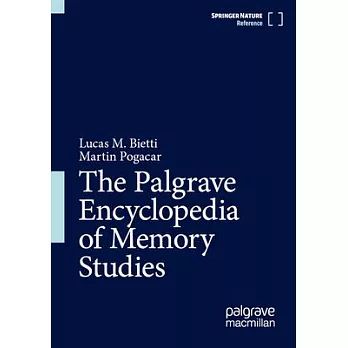Lucas M. Bietti is Associate Professor in the Department of Psychology at The Norwegian University of Science and Technology (NTNU). Previously, he was a Swiss National Science Foundation Ambizione Fellow at the University of Neuchâtel and a Marie Curie Research Fellow at Télécom Paris. He was also a postdoctoral researcher at the Centre National de la Recherche Scientifique (CNRS) in Paris, and held an Alexander von Humboldt Postdoctoral Research Fellowship at the Institute of Advanced Study in the Humanities (KWI) in Essen, Germany. He received a PhD in Linguistics from Macquarie University, Sydney and Pompeu Fabra University, Barcelona. He has edited three special issues in journals in cognitive science (Remembering through conversations. TopiCS in Cognitive Science, 11 (4), pp. 165. Impact Factor: 2.51, with Charles B. Stone as co-editor), history and cultural studies (Remembering in context. Memory Studies, 7 (3), pp. 134. Impact Factor: 1.978, with Charles B. Stone and William Hirst as co-editors) and linguistics (Coordination, collaboration and cooperation: Interdisciplinary perspectives. Interaction Studies, 16 (3), pp. 220. Impact Factor: 1.150, with Federica Amici as co-editor). In addition, he has published a monograph (Discursive Remembering: Individual and collective remembering as a discursive, cognitive and historical process. Berlin: De Gruyter), and an edited book (Contextualizing human memory: An interdisciplinary approach to how individuals and groups remember their pasts. London: Routledge, with Charles B. Stone as co-editor).
Martin Pogačar is a Research Fellow at the Research Centre of the Slovenian Academy of Sciences and Arts’ Institute of Culture and Memory Studies (2008-). He received his PhD from the University of Nova Gorica (2012) and the MA from UCL’s School of Slavonic and East European Studies (2005). He has guest-lectured at the ZRC Postgraduate School and co-runs a course in Media, Memory, and History. His research interests include media memory studies, popular music and memory, social media, memory and post-socialism, history of technology, history of industrialisation and modernisation. His publications include a monograph Media archaeologies, micro-archives and storytelling: re-presencing the past (London: Palgrave Macmillan, 2016); and articles Culture of the past: digital connectivity and dispotentiated futures (Hoskins 2018, Digital memory studies: media pasts in transition, 27-47), Alterations of memory: mediatising the interpretative void in post-Yugoslav Slovenia (Pusnik and Luthar 2020, The media of memory, 133-156); Music and memory: Yugoslav rock in social media. Southeastern Europe, 39(2), 2015, 215-236; Stories, Objects, Interfaces: Digital Technology and Cultural Heritage Among the Young (coauthored: Jasna Fakin Bajecand Matevž Straus) IPSI Transactions on Internet Research, 17(2) 2021, 51-59). Digital heritage: co-historicity and the multicultural heritage of former Yugoslavia. Two Homelands, 2014, 39, 111-124.
Editorial board (to be completed)
The list of memory scholars we plan to include in the editorial board takes into consideration gender balance and geographical diversity. Forty-seven percent of scholars are female and we have included scholars based in Africa (South Africa), Asia (Hong Kong and Singapore), Australasia (Australia), North America (Canada and USA), South America (Argentina), and Europe (Austria, Belgium, Denmark, France, Germany, Poland, the Netherlands, and the UK).
1. Aleida Asmann, University of Konstanz, Germany (F)
2. Lucy Bond, University of Westminster, UK (F)
3. Jens Brockmeier, The American University of Paris, France
4. Steven D. Brown, Nottingham Trent University, UK
5. Christopher Colvin, University of Cape Town, South Africa
6. Stef Craps, Ghent University, Belgium
7. Rick Crownshaw, Goldsmith, University of London, UK
8. José Van Dijck, University of Utrecht, The Netherlands (F)
9. Astrid Erll, Goethe-University Frankfurt, Germany (F)
10. Wolfgang Ernst, Humboldt University, Berlin, Germany
11. Robyn Fivush, Emory University, Atlanta, USA (F)
12. Sarah Gensburger, Centre National de la Recherche Scientifique, Paris, France (F)
13. Marianne Hirsch, Columbia University, NY, USA (F)
14. William Hirst, New School for Social Research, NY, USA
15. Andrew Hoskins, University of Glasgow, UK
16. Elizabeth Jelin, National Scientific and Technical Research Council, Buenos Aires, Argentina (F)
17. Wulf Kansteiner, Aarhus University, Denmark
18. Emily Keightley, Loughborough University, UK (F)
19. Kwok Kian-Woon, Nanyang Technological University, Singapore
20. Iwona Kurz, Institute of Polish Studies, University of Warsaw, Poland (F)
21. Catherine Loveday, University of Westminster, London, UK (F)
22. Sharon Macdonald, Humboldt University, Berlin, Germany (F)
23. Kourken Michaelian, University of Grenoble Alpes, France
24. Kyoko Murakami, University of Bath, UK (F)
25. Katharina Niemeyer, University of Quebec in Montreal, Canada (F)
26. Jeffrey Olick, University of Virginia, USA
27. Ljiljana Radonic, The Institute of Culture Studies and Theatre History, Austria Academy of Sciences, Vienna (F)
28. Anna Reading, Kings College London, UK (F)
29. Paula Reavey, London South Bank University, UK (F)
30. Ann Rigney, Utrecht University, The Netherlands (F)
31. Michael Rothberg, University of Illinois at Urbana-Champaign, USA
32. Wai Hei Samson Yuen, Hong Kong Baptist University, Hong Kong
33. Charles Stone, John Jay College of Criminal Justice, CUNY, USA
34. John Sutton, Macquarie University, Sydney, Australia
35. Brady Wagoner, Aalborg University, Denmark



 天天爆殺
天天爆殺  今日66折
今日66折 

























 博客來
博客來 博客來
博客來 博客來
博客來 博客來
博客來 博客來
博客來